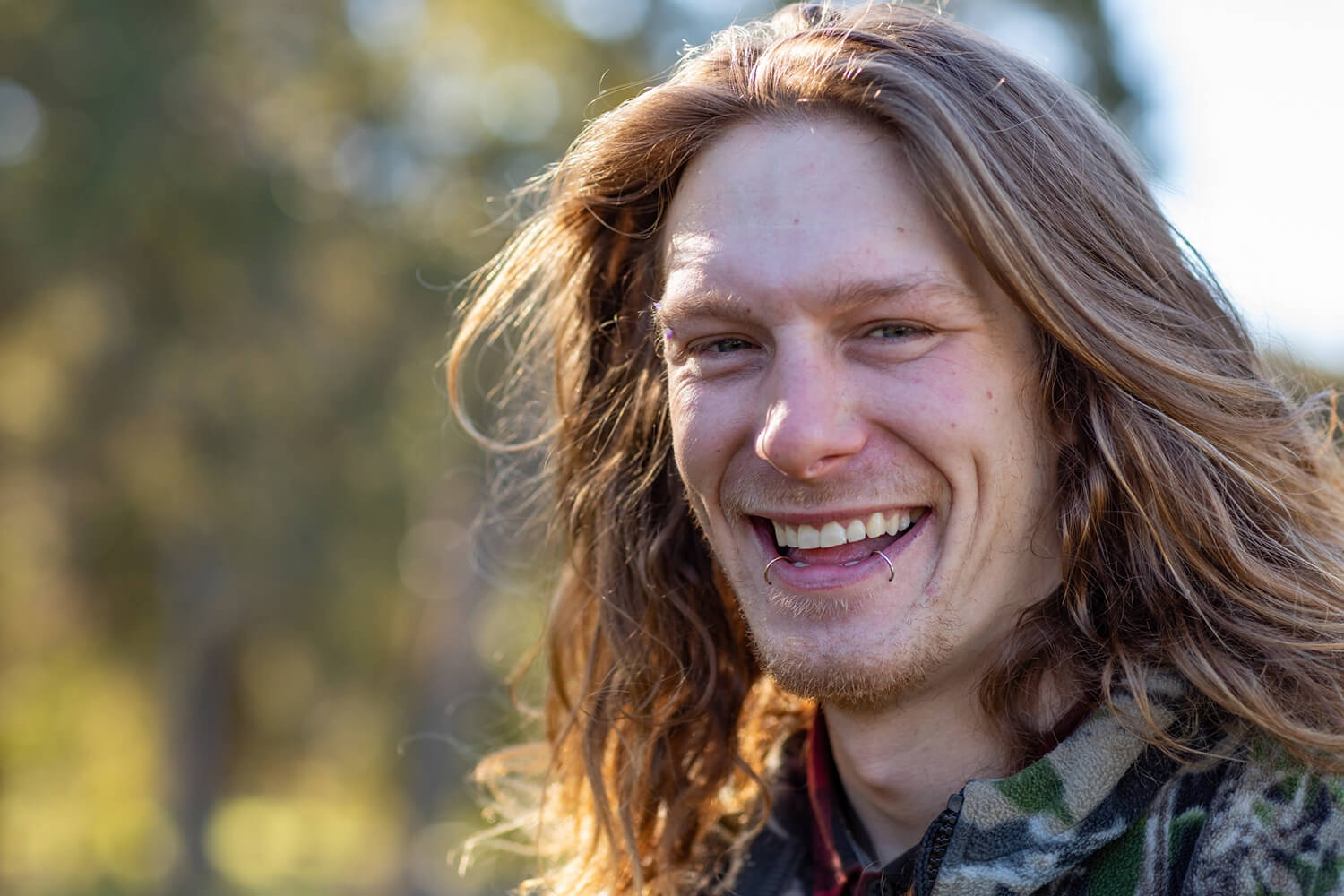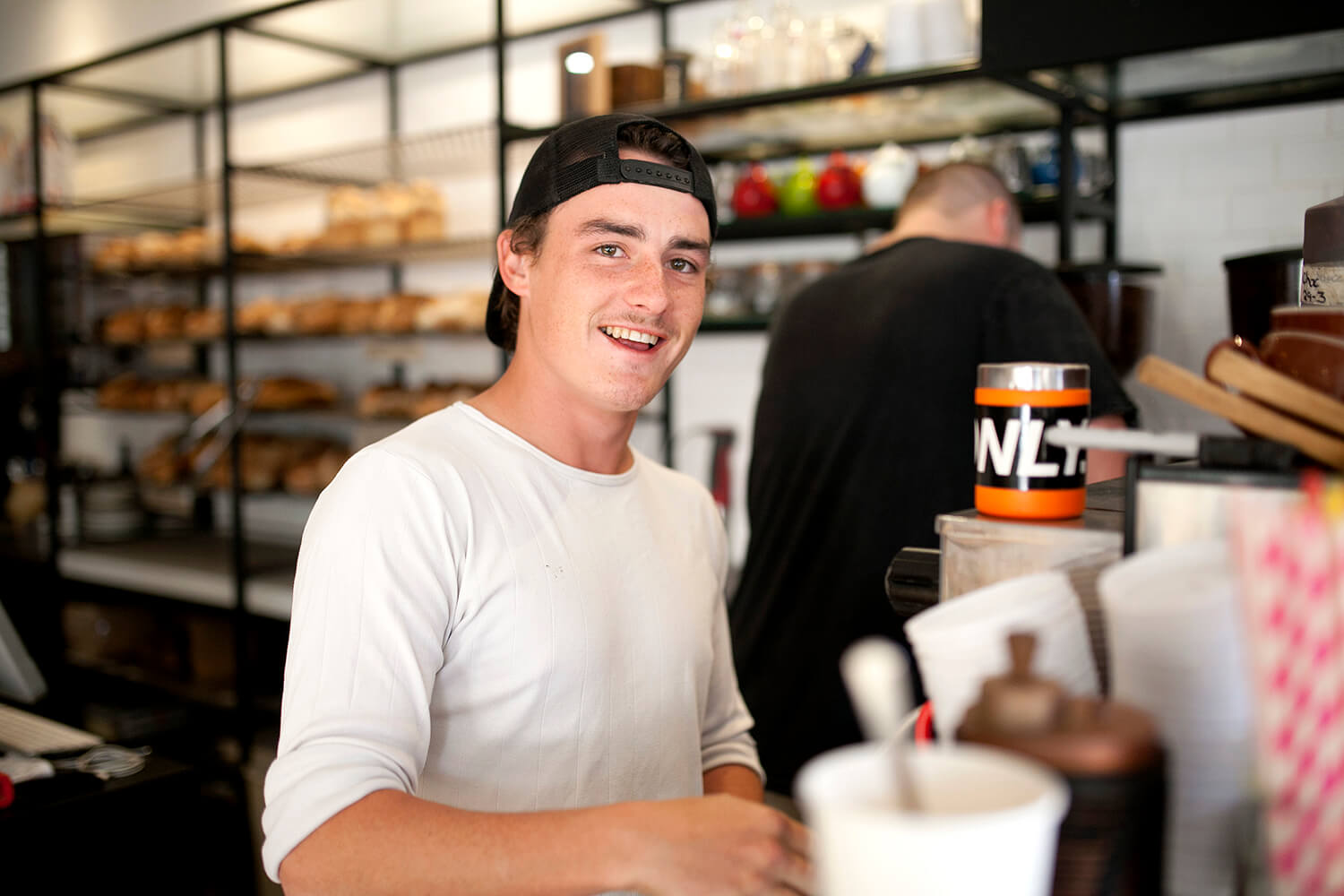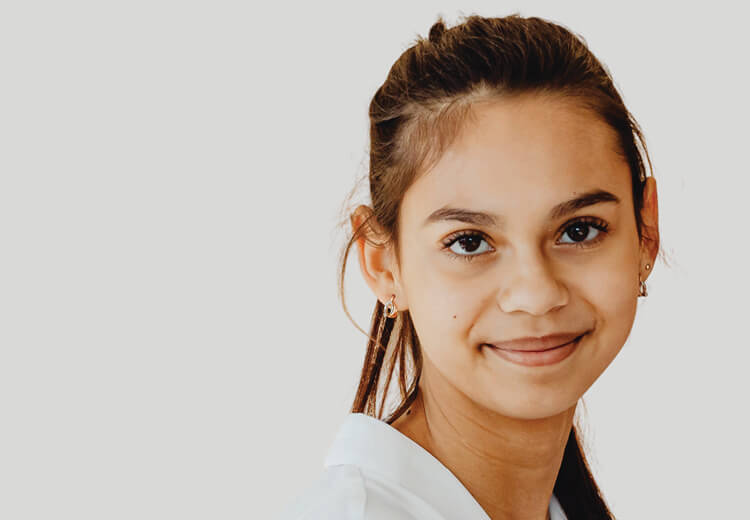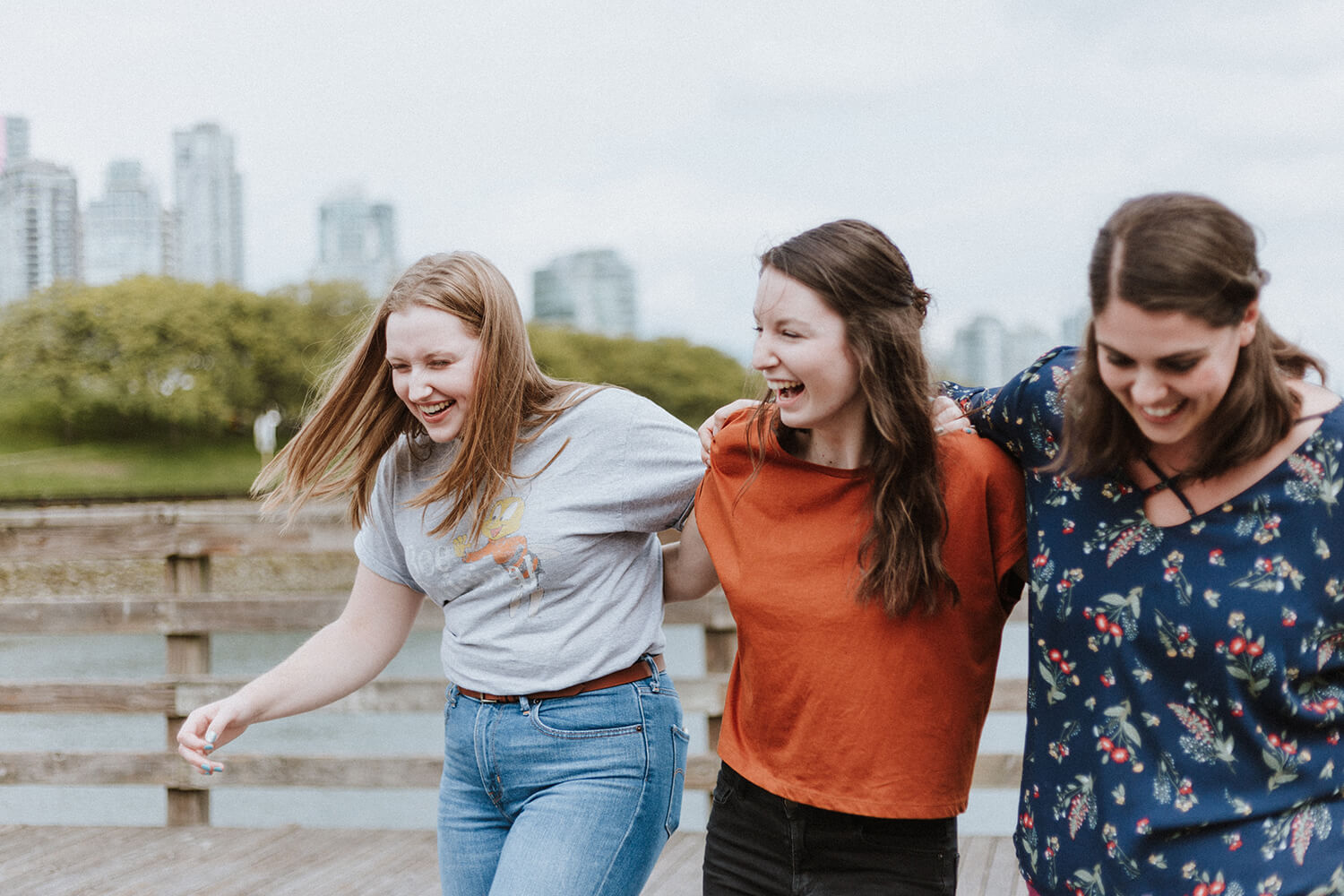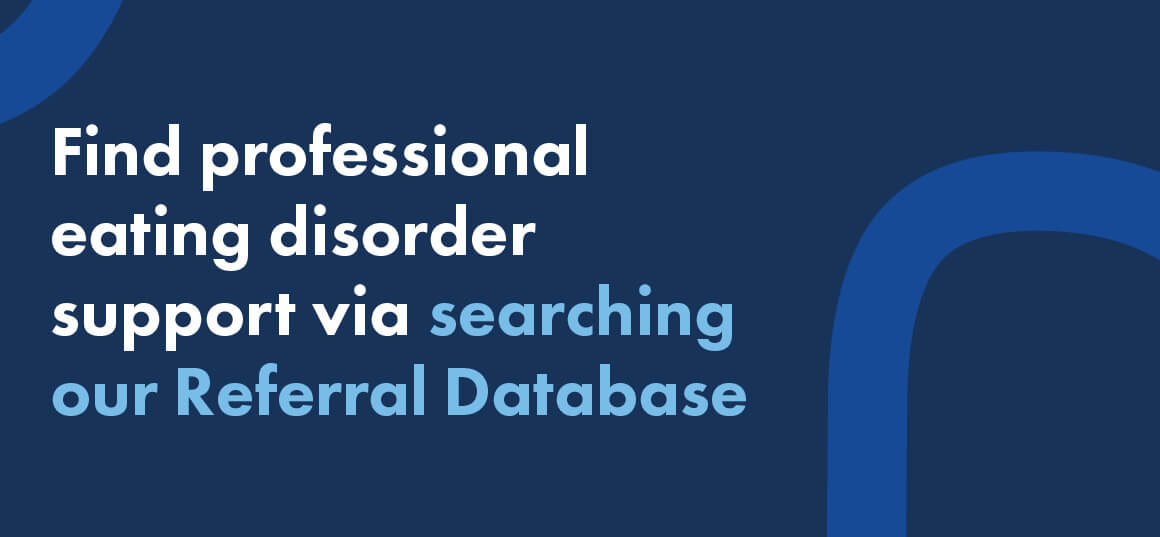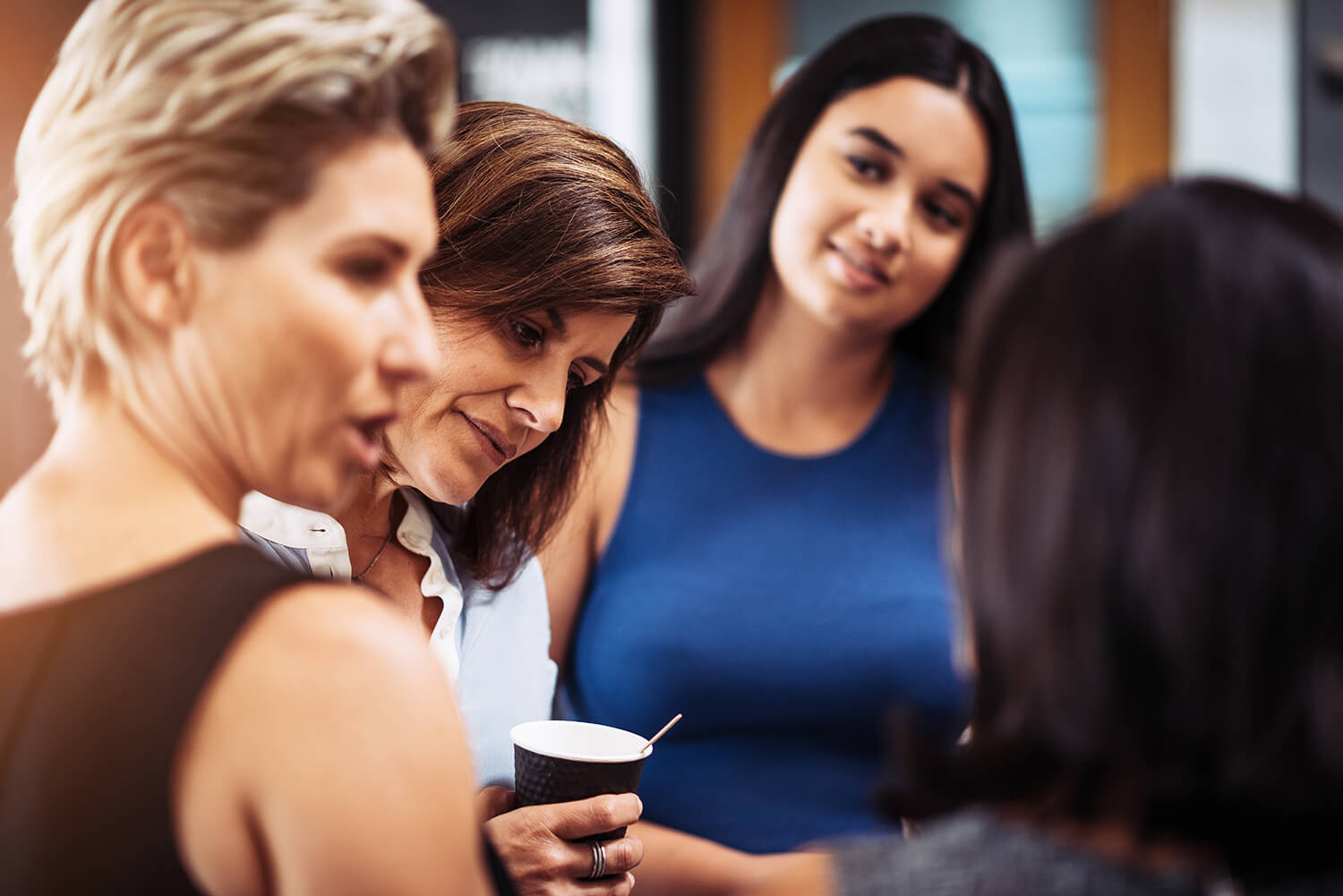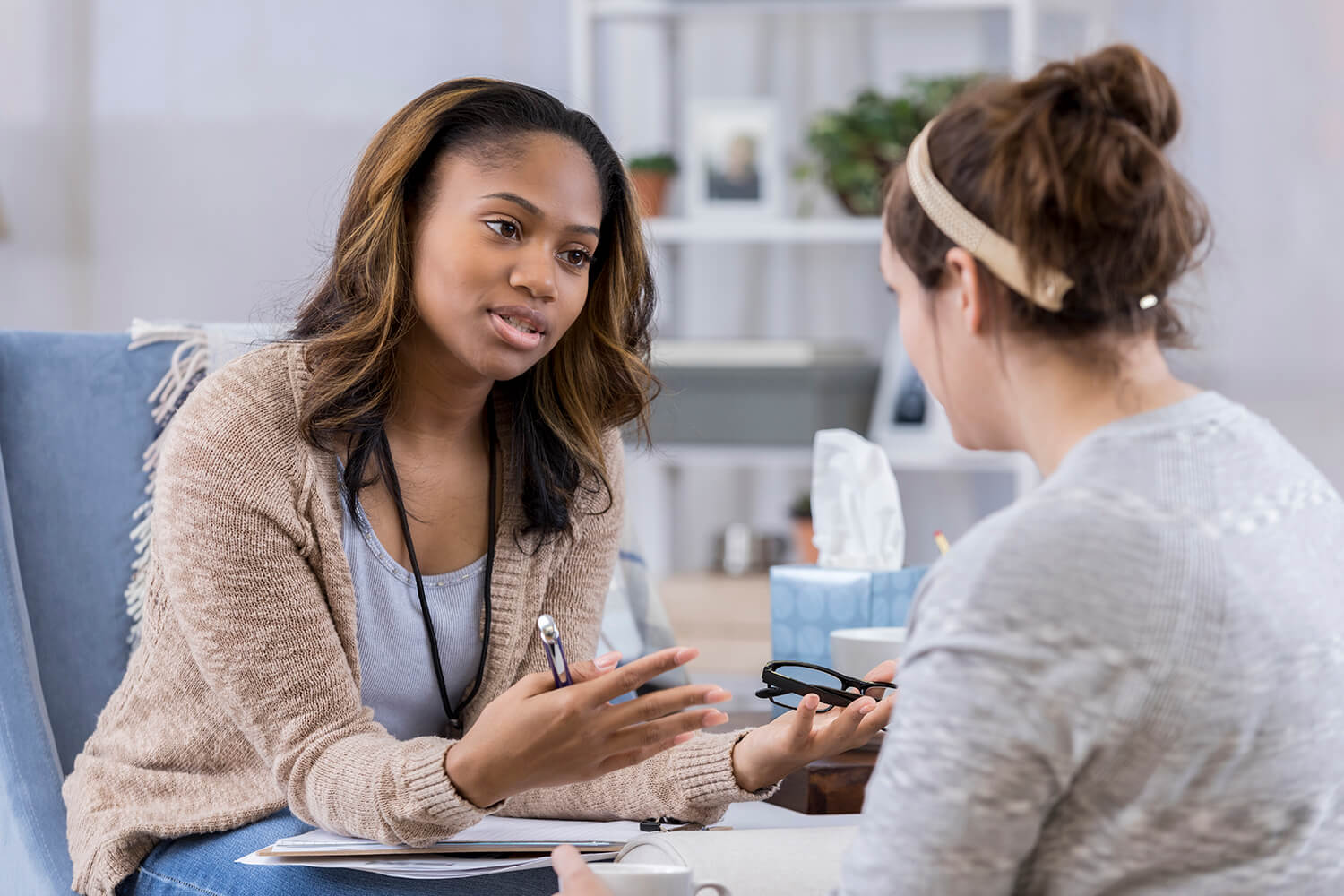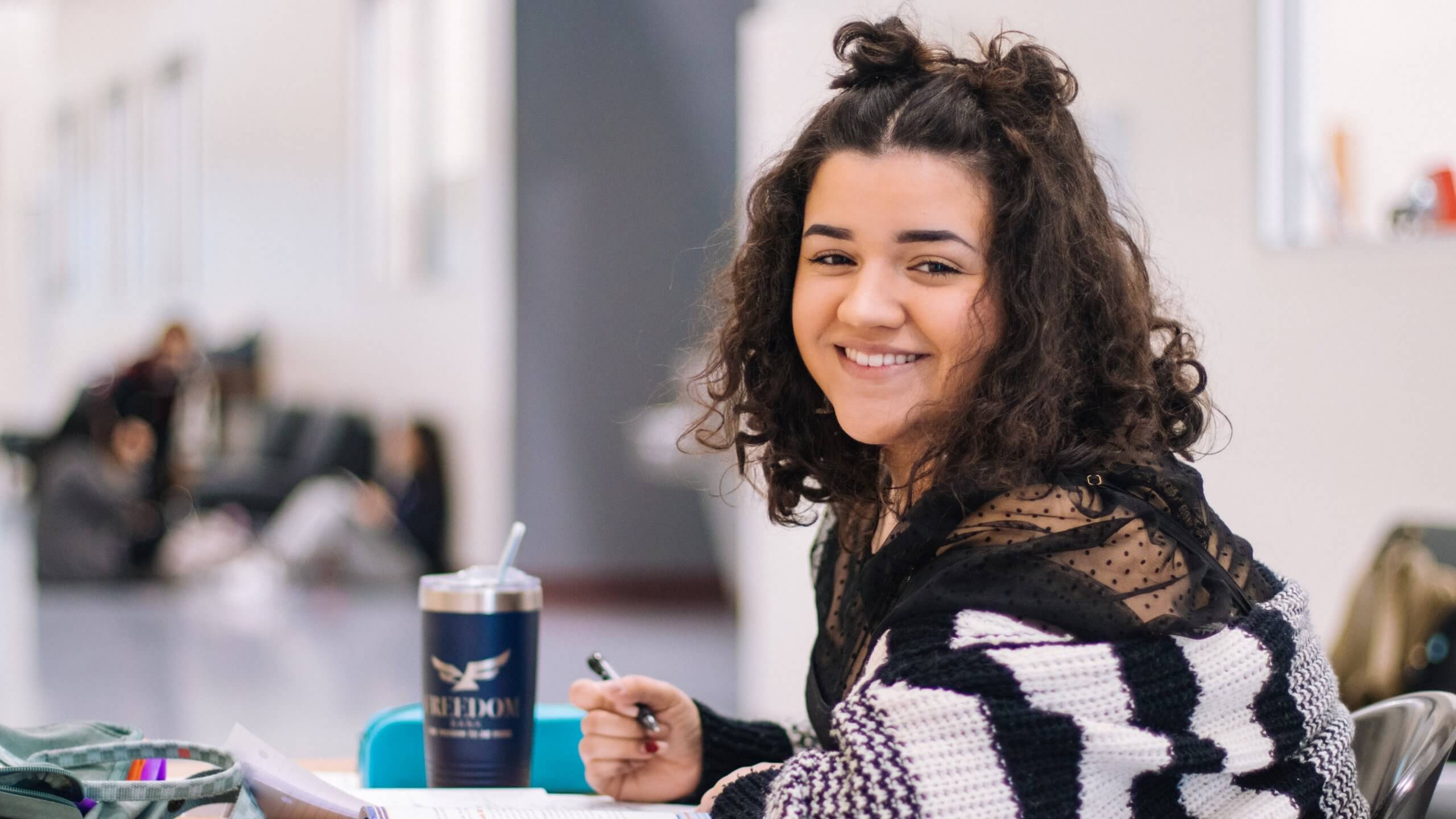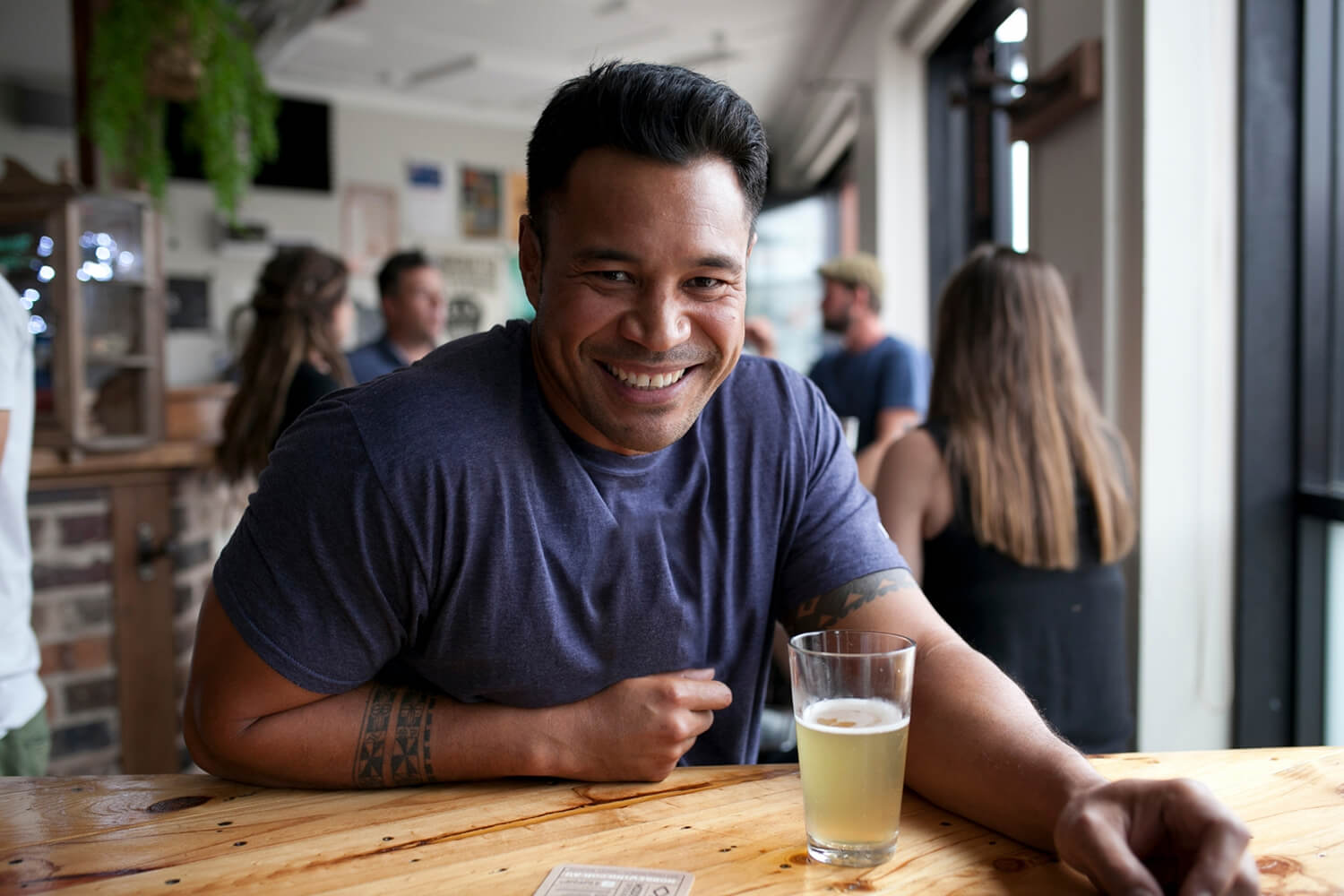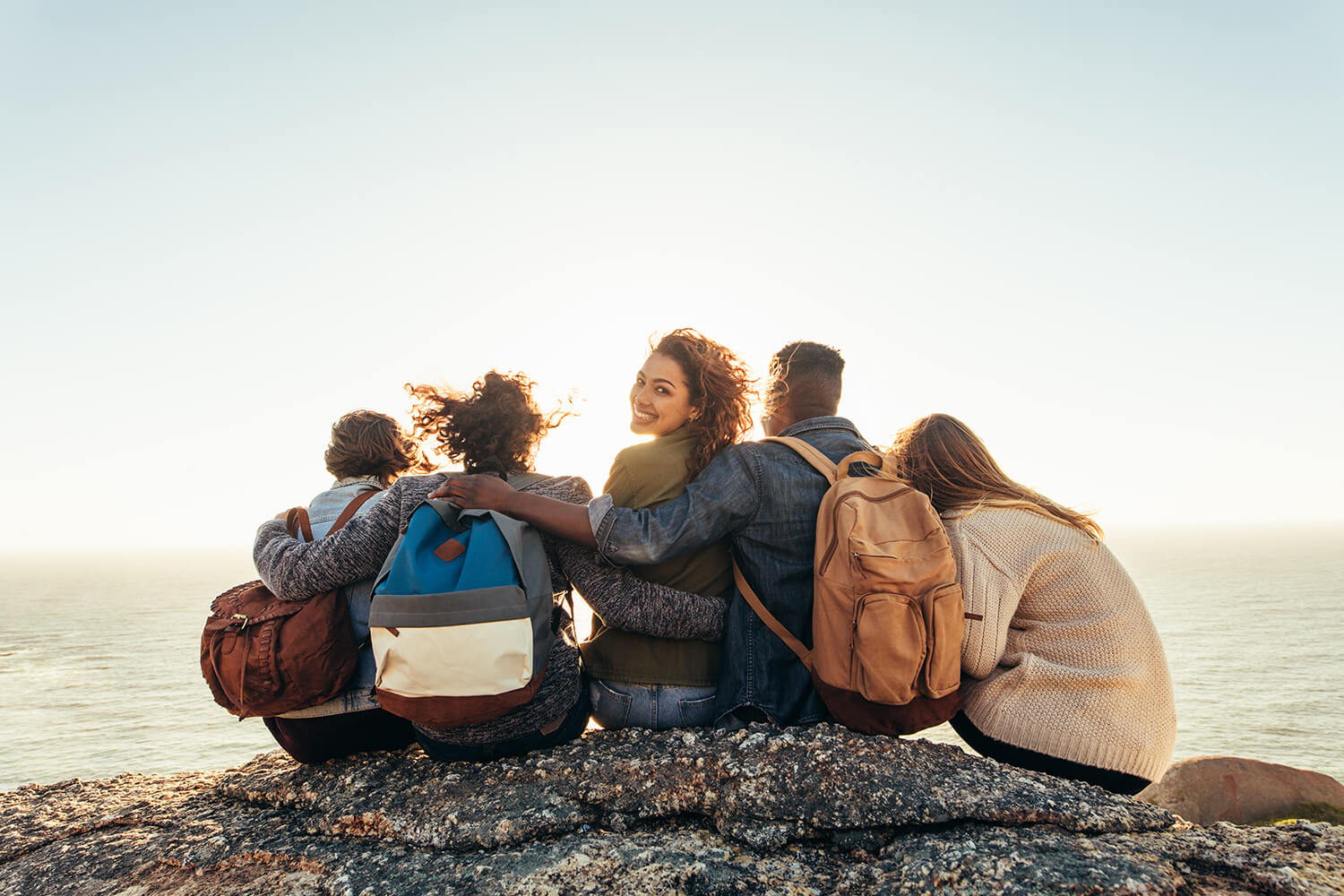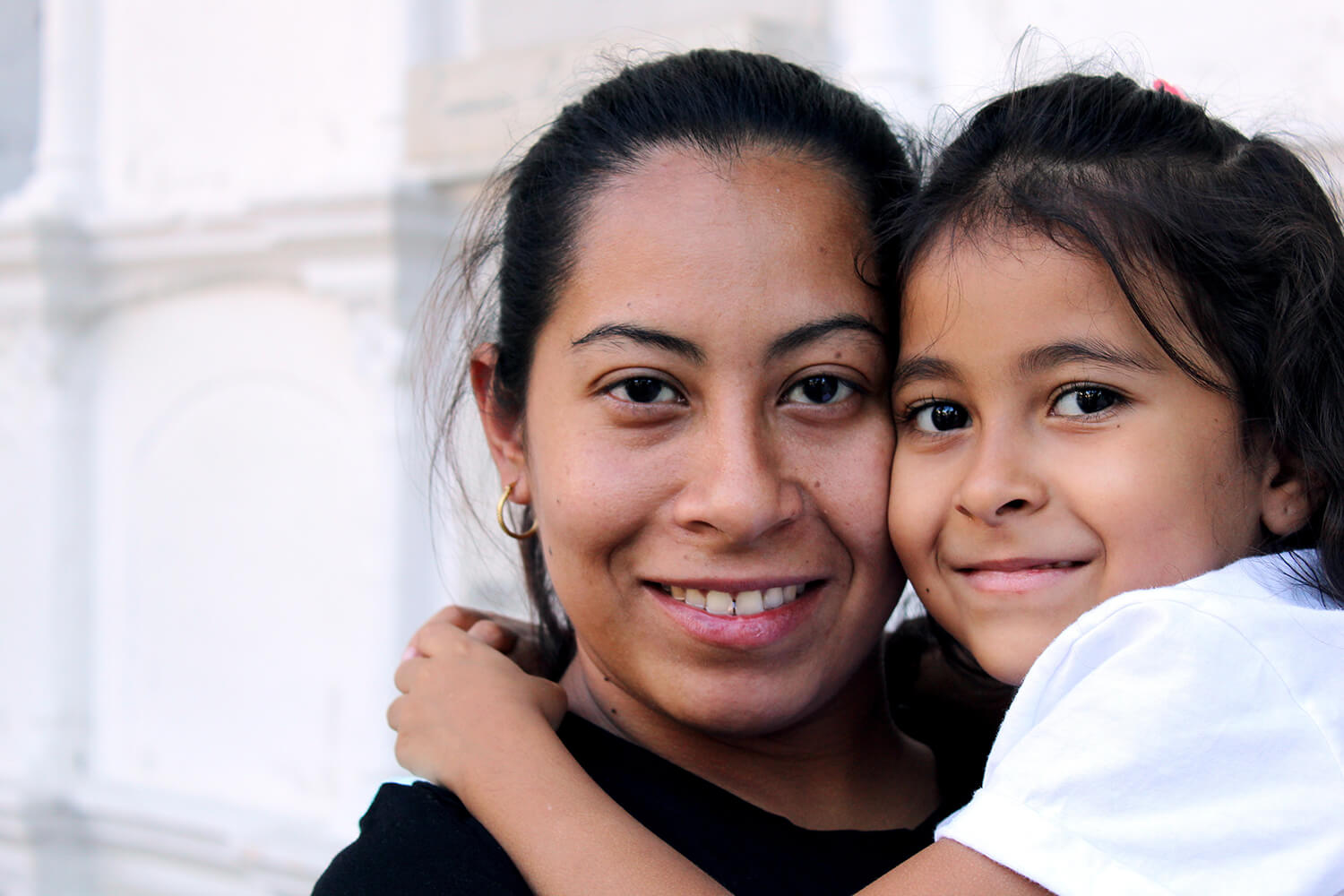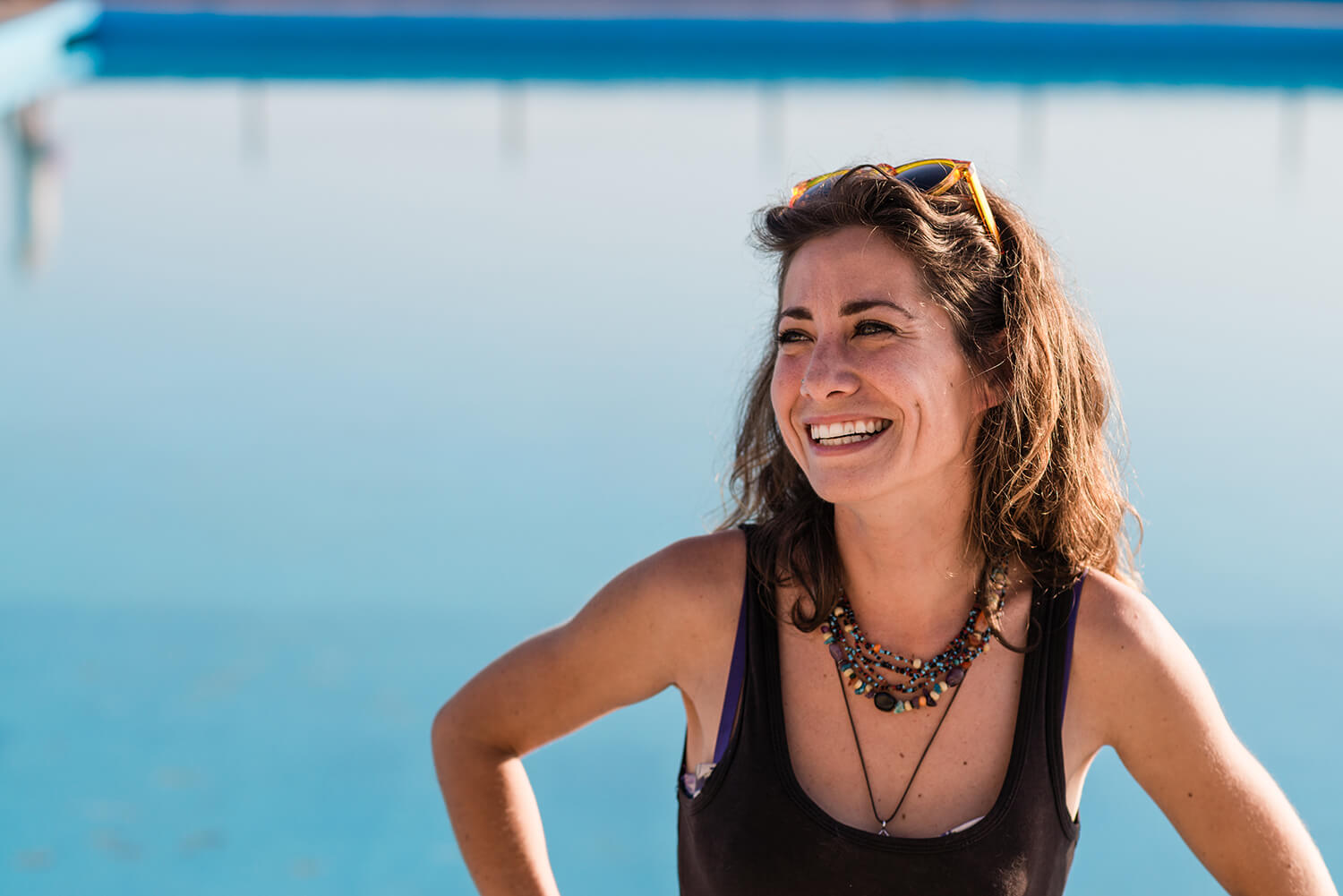No Diet Day: HAES Dietitian Fiona Willer’s Thoughts
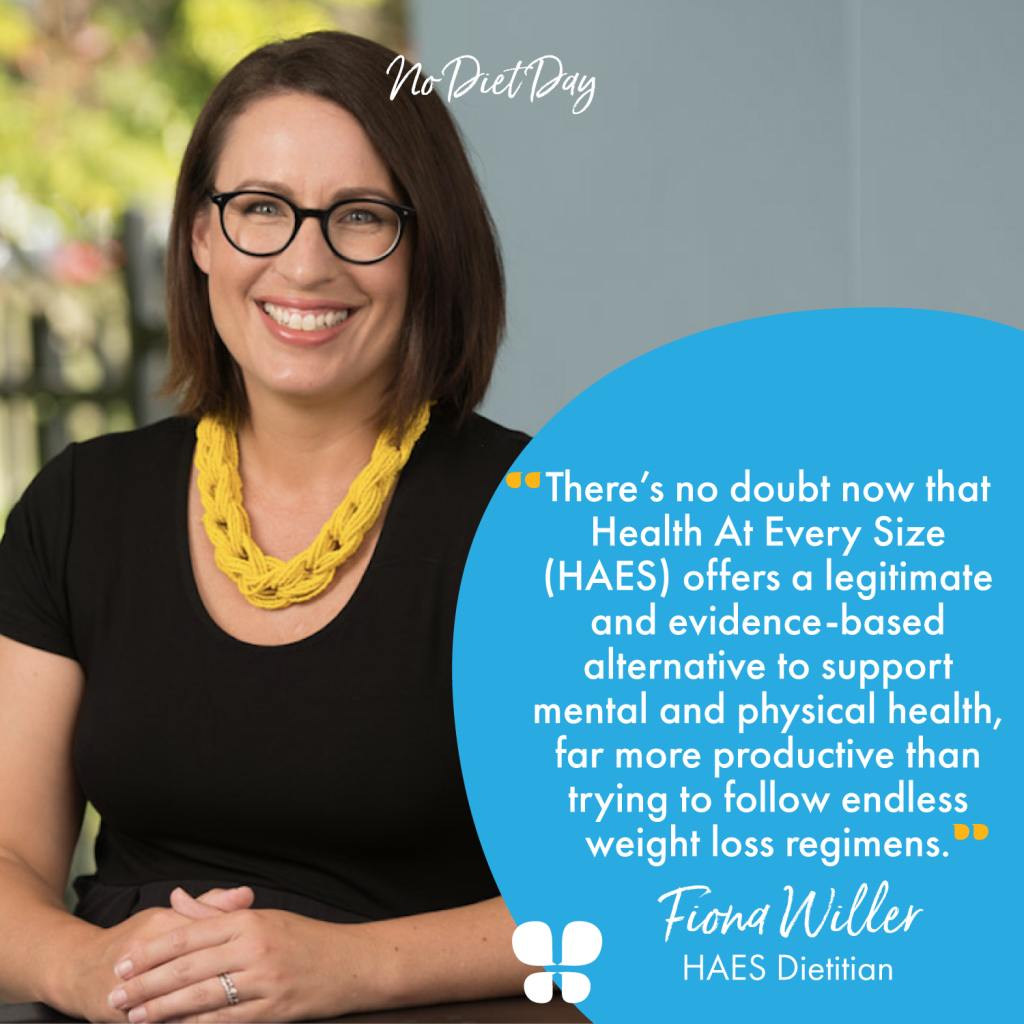
By Fiona Willer, AdvAPD, FHEA, MAICD, PhD (expected 2021)
When we talk about ‘a diet’ on International No Diet Day what we mean is any way of eating or moving where your intention is weight loss or body shape change. Thinking this way reduces the wonderous world of eating down to one factor: it’s influence on body weight. This does a huge disservice to the role that food plays in our lives and cultural connections and is embarrassingly simplistic given the complicated factors involved in long term human weight regulation.
For me, International No Diet Day offers a chance for me to reflect on the years gone by – to think about how long it has been since I entertained the thought of a diet, and restate my pledge to keep it that way forever. It offers a reason (more than usual!) to spread the word about what we actually lose (not weight!) when we try to lose weight.
I’ve been a dietitian since 2007 and have been a non-diet approach advocate for most of that time, despite receiving very weight-centric training and starting off in private practice offering weight loss services. I came to dietetics as a second career and as a means to treat my own eating disorder – one that I wasn’t aware even WAS an eating disorder at the time.
During my dietetics degree a more senior student handed me her copy of the wonderful book ‘If Not Dieting, Then What?’ by Dr Rick Kausman and that really set me off on the path that I remain on today. I started tentatively questioning the wisdom of weight loss advice, given that I’d been seriously dieting off and on since my early teens, and if anything, was in a far worse place with my body image and health behaviours more than 10 years later.
I recalled the clinical precision of the sales pitch I was taught at the weight loss centre for women that I worked at while I was a first-year dietetics student – a process literally designed to make women cry about how they felt about their bodies before promising them a slim future in exchange for their credit card. Once I graduated, I observed my dietetics clients lose weight initially, then falter.
I listened to how long and how they’d been trying to lose weight – dietitians are often the last port of call after multiple diets from books/tv/internet/celeb chef/doctor/personal trainer. I told myself that dietitians had the ‘special sauce’ for lasting weight loss because we were THE food and eating health professionals. I did the maths and looked for every calorie I could squeeze out of my clients’ lifestyles.
I heard and felt their pain and frustration as it was my pain and frustration too. And behind the scenes my eating disorder simmered, being able to justify my actions to myself on the basis that as a dietitian I had a professional obligation to keep trying to look a certain way.
But the words from Rick’s book continued to whisper in my psyche, even if I wasn’t ready to truly accept them yet. As time went by, they were harder to ignore and eventually I just couldn’t keep holding these conflicting beliefs and observations together anymore.
When I saw an ad for a research study that was aiming to use mindfulness to treat binge eating in people who were struggling with weight loss, I took a deep breath and applied to be accepted as a participant. The interview process confirmed that I did, after all, have a diagnosable eating disorder.
Having an actual diagnosis felt like a huge relief (as a human) on one hand, and on the other hand, a source of intense shame (as a dietitian). I thought that a dietitian, by definition, should be good at eating so then I mustn’t be much of a dietitian! I now know that this shame came from diet culture colliding with my internalisation of the societal stereotype of a dietitian.
It was an awful and exhilarating wake up call. The treatment program was aligned with Health At Every Size (HAES) principles. It was like Rick’s words were coming to life. I finally had professional support, a support group made up of people just like me and a framework to work through my baggage.
I showed up every week. I did the work. It worked (for me). I eventually developed a peaceful and caring relationship with my body and calmness around eating that I never thought was possible during my dieting days.
It’s now been well more than a decade since I was in treatment and I’m well recovered. That doesn’t mean I don’t have occasional thoughts about my fluctuating size and ageing body, just that those thoughts don’t include trying to intentionally change my size anymore. My body, even with its various ailments, is doing its best to keep me alive and I’m grateful for its efforts. I’m motivated to treat it well precisely because of my appreciation for it.
We’re sold this idea that losing weight is a hero’s journey, a moral struggle of good against evil, a performance of sacrifice for the community (to be a better mum, friend, health-service user, community member), a transformation story to inspire others, a battle to win.
HAES shows us just how hollow these pursuits are when body weight is involved. Pursuing a full life without dieting offers opportunities for doing good and making meaningful connections in our communities that are not dependent on appearance standards and are thus able to better weather the forces of time and circumstance.
I’ve been lucky enough to be able to devote my career to championing size acceptance, HAES principles, HAES outcomes and the non-diet approach in dietetics – including doing a PhD on the topic – and show health professionals the weight bias in our weight science.
Our dietetics courses have thankfully moved ahead in leaps and bounds. I’m honoured to be able to listen to people who have been severely impacted by diet culture and do my part to make things better.
The HAES field has come so far. There’s no doubt now that HAES offers a legitimate and evidence-based alternative to support mental and physical health, far more productive than trying to follow endless weight loss regimens.
So this International No Diet Day, make your pledge to ditch diets for good (and seek professional support if you need a hand – we’re more than happy to help!)




